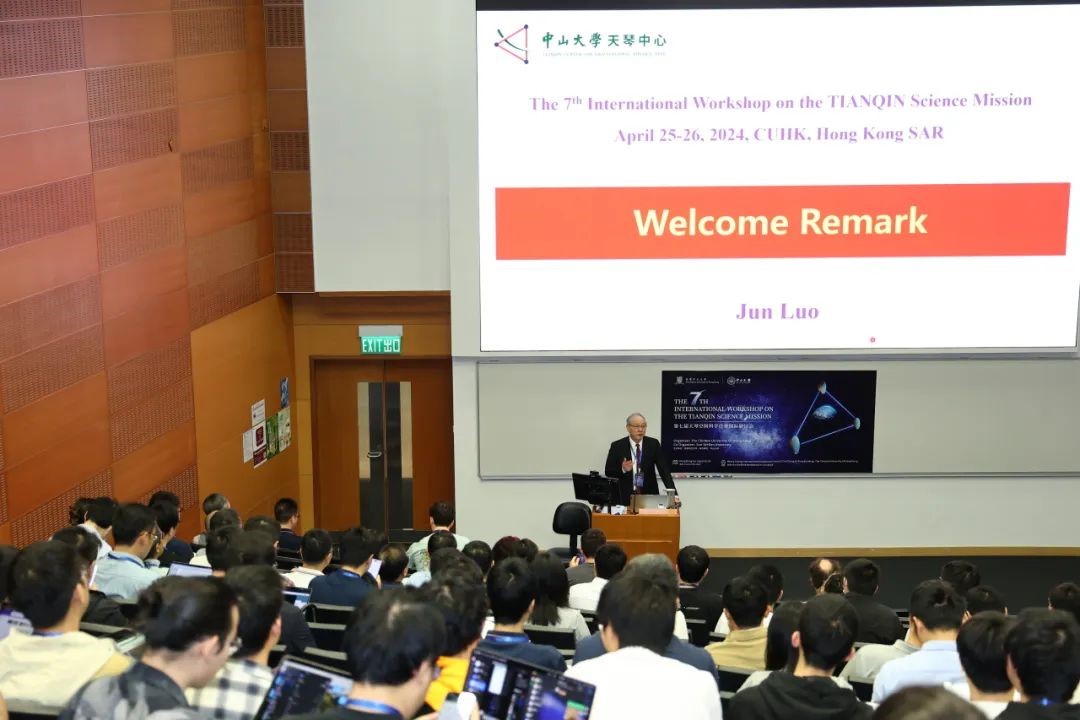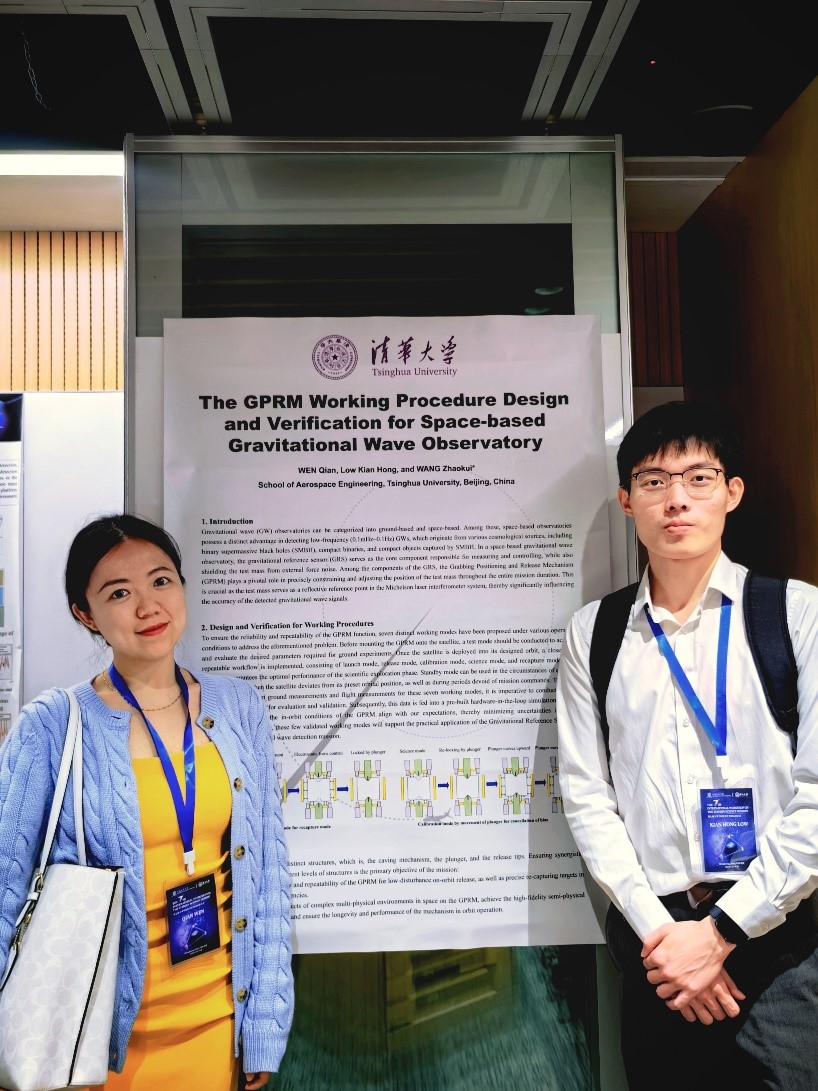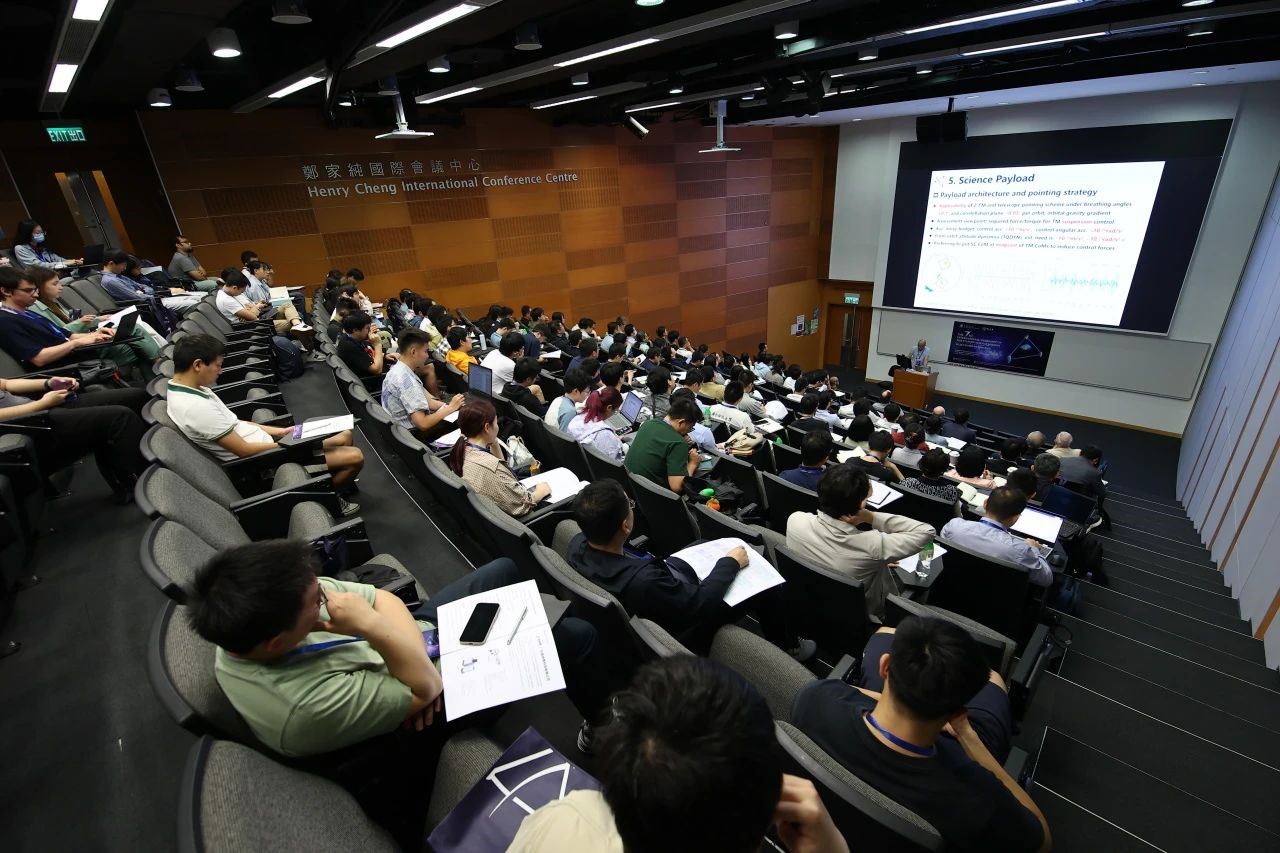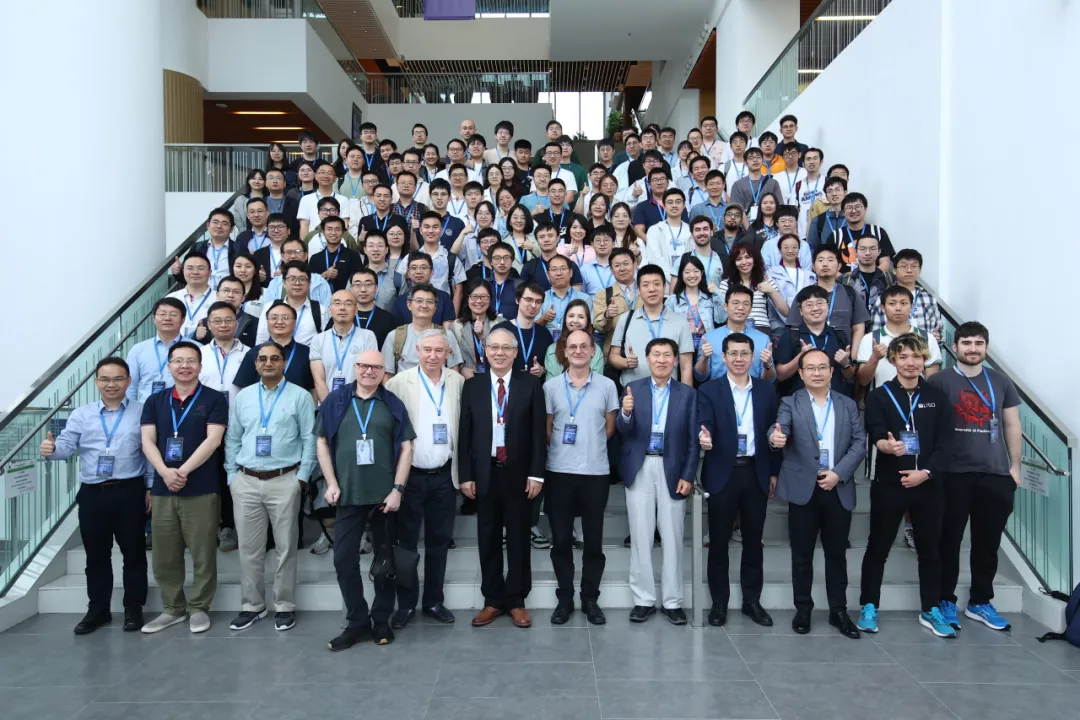From April 25 to 26, 2024, WEN Qian and LOW Kian Hong participated in the 7th International Workshop on the TIANQIN Science Mission which was held in Hong Kong. More than 120 scholars from universities and research institutes around the world gathered at the Henry Cheng International Conference Centre at the Chinese University of Hong Kong to discuss Tianqin’s mission, gravitational wave detection

WEN Qian and LOW Kian Hong presented a poster during the workshop with the title “The GPRM Working Procedure Design and Verification for Space-based Gravitational Wave Observatory”. The latest work on the gravitational wave detection project, specifically the grabbing positioning and release mechanism was introduced. Seven working modes were proposed and discussed elaborately.

There were a total of 30 oral presentations in the meeting, focusing on the significance of gravitational wave detection in space, how to carry out detection in high orbit, and the progress of the technical research of the Tianqin Project, etc.

Academician of the Chinese Academy of Sciences, Luo Jun, who is the Chief Scientist of the Tianqin Program, made a speech titled “Tianqin Project: Gravitational Wave Detection by China”. In his speech, he said, we named this project ‘Tianqin’, just like putting a harp into space to be played by nature through gravitational waves.” He also said that because of the orbit design of the Tianqin Project, complex gravitational challenges, severe thermal conditions, and a plasma environment were encountered. However, these problems have been fully investigated and tackled. With the designed orbit, the Tianqin Project has a shorter deployment time, a more stable constellation configuration, a higher precision of the orbit determination, a faster data transmission.
Since 2014 when the Tianqin Program is proposed, workshops for the Tianqin space science mission have been held multiple times in Wuhan, Zhuhai, Guangzhou, etc.. For this workshop in Hong Kong, the aim was to promote cooperation and exchanges, advance the scientific findings, and discuss the key detection technologies related to the detection of gravitational waves in space-based systems.
